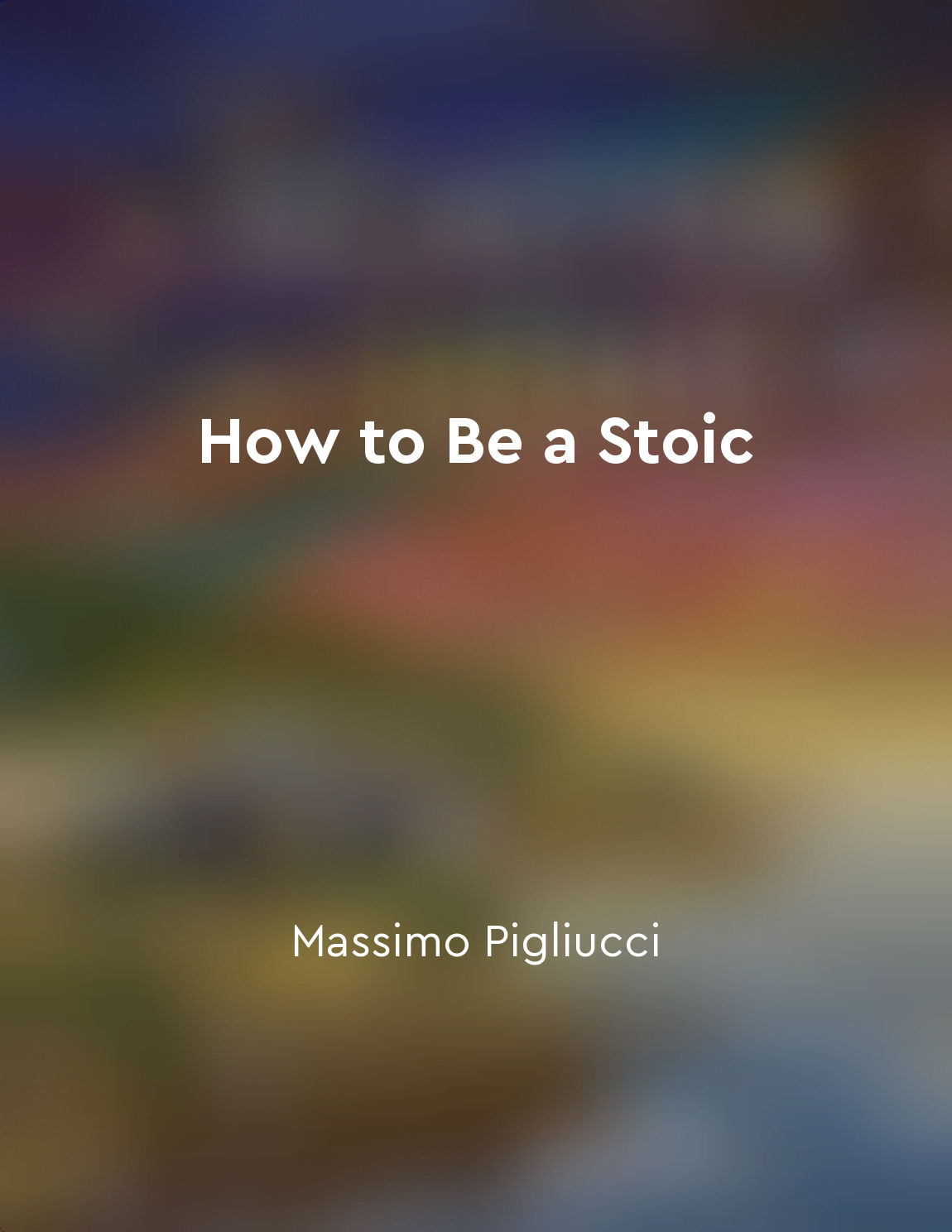Stoicism teaches us to respond wisely to emotions from "summary" of Stoicism and Emotion by Margaret Graver
Stoicism, as a philosophical tradition originating in ancient Greece, offers practical guidance on how to navigate the complexities of human emotions. By examining the teachings of Stoic philosophers such as Epictetus, Seneca, and Marcus Aurelius, we can gain insight into how to respond wisely to the various emotions that we experience in our lives. One key aspect of Stoic philosophy is the notion that emotions are within our control. Instead of being victims of our emotions, Stoicism encourages us to take responsibility for how we respond to them. This means cultivating a mindset that allows us to approach our emotions with rationality and self-awareness. Stoicism teaches us to view emotions as judgments or evaluations of external events rather than as uncontrollable forces that dictate our actions. By recognizing this distinction,...Similar Posts
Greek drama and poetry reflected the joys and sorrows of human life
The ancient Greeks had a keen understanding of the complexities of human emotions and experiences. Their dramas and poetry were...

Stoics believe in finding contentment in simplicity
The Stoics, particularly Marcus Aurelius and Seneca, emphasize the importance of simplicity in finding contentment in life. Acc...
Postmodernism questioned traditional notions of truth and objectivity
Postmodernism arose as a challenge to the dominant philosophical assumptions of the modern era. One of the key aspects of this ...
Emotional intelligence is a key component of Stoic philosophy
Margaret Graver delves deep into the intersection of emotional intelligence and Stoic philosophy in her book "Stoicism and Emot...

The Stoic life is one of inner strength and resilience
The Stoic life is centered around the cultivation of inner strength and resilience. Stoicism teaches individuals to face challe...
They advocate for living a life guided by principles and values
Living a life guided by principles and values is at the heart of Stoicism. The Stoics believed in the importance of ethical liv...

The practice of Stoicism emphasizes the power of reason over emotion
Stoicism, as a philosophy, places great importance on the supremacy of reason over emotions. This fundamental principle guides ...

Emotions should be guided by reason in Stoicism
The Stoics believe that emotions are a natural part of human experience, but they should not be allowed to run rampant. Instead...

Develop resilience in the face of setbacks
Resilience in the face of setbacks is a foundational concept in Stoicism. The Stoics believed that setbacks are an inevitable p...
Stoic romanticism challenges traditional views of emotion
In challenging traditional views of emotion, Stoic romanticism advocates for a reevaluation of how we understand and experience...
